“Survival is insufficient”
I have been fascinated with post-apocalyptic stories since I was a kid. There are variations of these stories and each has its own cause of societal breakdown like a virus in Contagion, zombies in World War Z, nuclear fallout in The Day After, or even a mysterious cause like in The Road. I love each of them for what they set to achieve in telling a survival story. Enter Station Eleven, the most subtle of them all. “Survival is insufficient” is the motto of a traveling Shakespeare troupe in Emily St. John Mandel’s novel Station Eleven. The line comes from Star Trek: Voyager. I read Station Eleven a few years ago and this motto has stuck with me ever since.
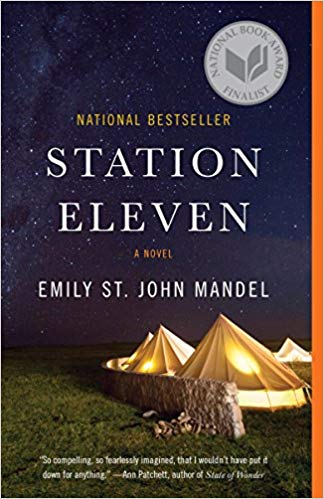
Station Eleven is a light, often beautiful novel which manages to be both elegiac and optimistic as I read an from early review I read. The novel is set before, during, and fifteen years after a frighteningly efficient flu virus wipes out most of humanity within a week. The main characters are followed as they travel around Michigan and Canada on wagons. Station Eleven focuses transition between previous everyday life and the current apocalypse, and then between apocalypse and what comes next. Normal life again.
I’m also reading Island of the Lost, a story about two shipwrecks on opposite ends of the Auckland Islands, 250 miles south of modern New Zealand in the mid 19th Century. In 1864 Captain Thomas Musgrave and his crew of four aboard the schooner Graftonwreck on the southern end of the island are utterly alone in a dense coastal forest plagued by hurricane gusts, stinging blowflies, and near starvation.. Captain Musgrave—rather than succumb to this dismal fate—inspires his men to take action. With few tools, they build a cabin and, remarkably, a forge, where they manufacture their tools. Under Musgrave’s leadership, they band together and remain civilized through even the darkest and most terrifying days.
Incredibly, at the same time on the opposite end of the island—twenty miles of impassable cliffs and interior mountainous terrain—the Invercauld wrecks during a horrible storm. Nineteen men stagger ashore. Unlike the Grafton, the captain of the Invercauld falls apart given the same dismal circumstances. His men fight and split up; some die of starvation, others turn to cannibalism. Only three survive. Musgrave and all of his men not only endure for nearly two years, they also plan their own astonishing escape, setting off on one of the most courageous sea voyages in history.
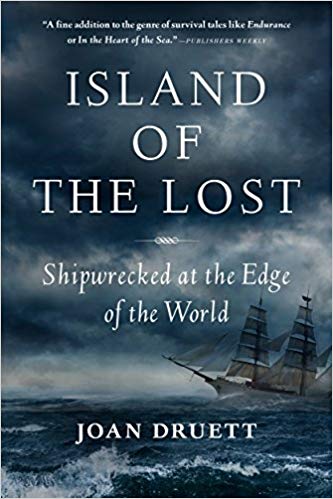
What was different between the two? What set Musgrave apart was that he focused his men on staying focused on moving at all times. They created tools, hunted, studied indigenous animals, read the Bible to each other, and even taught each other languages. Despite their circumstances, Musgrave and his men were growing in their hearts and minds while physically surviving.
Survival is Insufficient.
None of us know how we would handle each of these dire circumstances. Each one poses a new reality for its characters whether fiction or non-fiction. Thank God most of us will never encounter anything like these ships. Each day of our lives can feel like drudgery and we spend our time as though we are merely surviving. I love a good schedule and staying busy. That means I accomplish a lot of tasks. Yet, I rarely pause to reflect or think about what it all means. Reading these stories serve as a wake-up call to me because the way I live my life can be perceived as living through apocalypse or shipwreck. I am left with these questions:
- How am I reading more widely? How am I writing?
- How am I learning how to be a better and more loving husband?
- How am I learning how to become a better father?
- How am I growing in grace to follow Jesus more passionately?
- How am I growing to be a better professional at work?
- What am I doing to become a better leader and encourager to those on my team and those around me?
Our lives may not be the backdrop of an apocalypse but deep down it can feel like it. What questions do you need to ask of yourself to live and serve better?
“Therefore we do not give up. Even though our outer person is being destroyed, our inner person is being renewed day by day. For our momentary light affliction is producing for us an absolutely incomparable eternal weight of glory.” 2 Corinthians 4:16-17 CSB







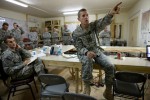
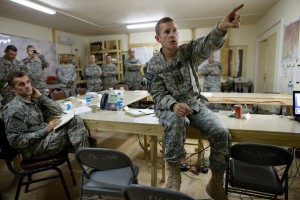
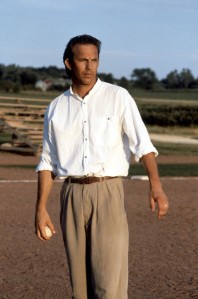




 ,
, 













